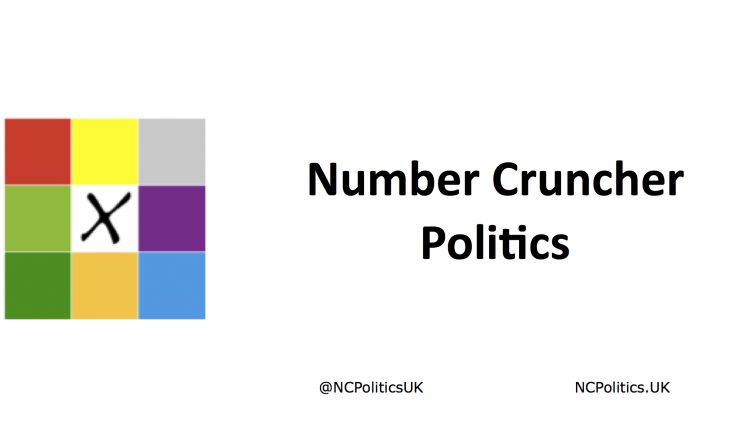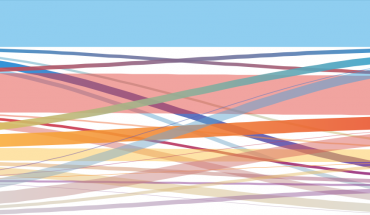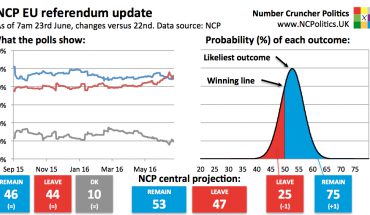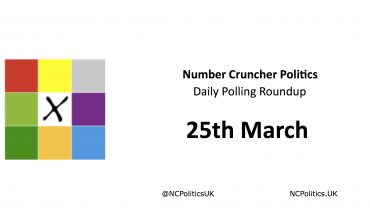It’s that time of year again! In 2016 we have pretty much everything besides a general election. And while I’ve been very tied up with the referendum, I’ve had a few people asking for my thoughts. So here they are!
London
For the first time since the 1970s, the top job in the capital is being decided without Ken Livingstone in the running, although that hasn’t stopped him dominating the news at times. Given the former Mayor’s centrality to Labour’s recent row, and Zac Goldsmith’s controversial campaign tactics, this is by far the ugliest and most bad-tempered contest yet.
But who will win it? The polls have moved increasingly towards Saddiq Khan, giving the Labour candidate a substantial lead. Given all the usual caveats around polling (and particularly polling a place like London) plus the likelihood of a low turnout, recent events, chatter about Bradley effects and so on, there is some nervousness among pollsters (and Labour).
Recent #LondonMayor2016 polls all pretty similar. Khan %:
ComRes 56
Opinium 57
TNS 57
Survation 60
YouGov 60Fresh YouGov expected later
— Matt Singh (@MattSingh_) May 4, 2016
While turnout is the biggest question mark, my expectation continues to be that a (likely) rock-bottom turnout won’t be enough to save Zac. That fits with this analysis from Adam Ludlow at ComRes that convincingly makes the case that the impact of turnout might not be that great.
Pollsters will admit privately that they’re more worried about underestimating Goldsmith than overestimating him, and I wouldn’t be surprised to see Khan’s numbers closer to the bottom of the above range than the top. But he is far enough ahead that it would be extraordinary if he didn’t win.
Likeliest outcome: Yes he Khan.
Scotland
First place at Holyrood is not in doubt. The SNP continues to enjoy massive levels of support having consolidated the 2014 Yes vote behind it. And compared with 2011, an opposition further divided will make it hard for the unionist parties to stop Nicola Sturgeon winning another overall majority, absent implausible amounts of tactical voting. On paper, the SNP only needs a constituency vote in the mid 40s and a list vote not too far below 40 to win another majority – it looks likely that they’ll clear those hurdles.
But what about second place? Even as I write this, it’s still hard to fathom that this is even close. Labour has not finished behind the Tories in Scotland since 1955 and hasn’t finished third since December 1910.
But close it is – too close to call in fact. It will all come down to which polls have the list vote right. And unlike at the general election last year when there was plenty of evidence with which to cross-check the flawed GB polls, this time the judgement is more methodological.
But with all of those caveats in mind, which outcome is likelier? In my opinion the Scottish Conservatives have a sightly better chance. The reason, in part, is that if is as close as the polls suggest, it could all come down to the skew – the relationship between votes (in this case, list votes) and seats. Because the Tories are likely to do better than Labour in terms of constituency seats, and could do so even on a lower constituency vote share, they have an advantage over Labour of something like a percentage point, even after the list seats iron out most of the disproportionality.
Likeliest outcome: SNP majority, second place on a knife-edge, but Tories favourites for the runner-up spot.
Wales
Wales is even tougher to call than London and Scotland because there is only one company polling it. YouGov’s house effect in Great Britain polling has shifted towards Labour and against the Conservatives, so if you think the truth is closer to the industry average, and Welsh house effects are like GB house effects, then by default you’d expect the final poll (there is only one!) to be a bit too favourable to the incumbents. That will be interesting, but as in Scotland the nature of the electoral system means that the error would need to be large to have much effect.
And given the rainbow composition of the Senedd, its political consequences would be limited too – Labour dropping back further won’t stop them from governing.
Roger Scully’s final poll writeup is highly recommended.
Likeliest outcome: Labour falls further short of an overall majority.
English local elections
Local elections, as I’ve argued are by far the most informative of these contests as to the national political landscape. They tend to be ignored, and when they are covered it’s normally in terms of seat gains or losses, but once the strong anti-government bias is factored in, the national vote share estimates are an excellent predictor of general election results.
The two main estimates of national vote share are the BBC’s projected national share (PNS) and Plymouth Election Centre’s National Equivalent Vote (NEV). Pay close attention to these – the PNS is usually calculated by John Curtice and Steve Fisher on the night, and the NEV by Colin Rallings and Michael Thrasher in the Sunday Times. Elections Etc has a great explanation of how they’re calculated.
Likeliest outcome: Labour to lose seats.
Westminster by-elections
We also get two parliamentary by-elections today, at Ogmore where Huw Irranca Davies is standing down to contest the coterminous Assembly seat, and Sheffield Brightside and Hillsborough following the death of Harry Harpham in February.
Ogmore is taking place at the same time as the Assembly elections, so should probably be more like a “normal” election than a by-election. Sheffield has council elections, which won’t guarantee a respectable turnout, but with other parties needing to focus their attention elsewhere, this too is not a classic by-election (and even if it were, the seat’s demographics aren’t wildly different from Oldham, where Labour won easily).
Likeliest outcome: Both Labour holds.
I won’t be saying too much more during the day, but be sure to follow tonight for real time analysis of the results as they come in. And best of luck to all readers that standing in or involved with today’s elections!




